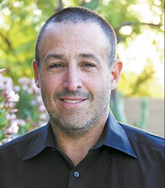 The man who raped and murdered Deana Bowdoin was put to death by the state of Arizona on May 11 at 10:30 a.m. This was 44 years, four months and four days after the homicide in question — or about 44 years too long by my reckoning.
The man who raped and murdered Deana Bowdoin was put to death by the state of Arizona on May 11 at 10:30 a.m. This was 44 years, four months and four days after the homicide in question — or about 44 years too long by my reckoning.
Even so, this column has little to do with Deana’s killer. This piece is about a 21-year-old girl subtracted from the world decades too soon, a young woman for whom there were no candlelight vigils this week, no protesters, no legal motions long enough to deforest the state.
That’s the thing about the anti-death-penalty conversation: All the focus is on the wrong loss of life, the wrong final heartbeat.
The only death I mourn here is Deana’s. The ASU coed was mere hours from graduation on Jan. 7, 1978, courtesy of three stab wounds and strangulation with a belt.
“When you think about it, you think how could this possibly have happened to this cute, good little girl?” Deana’s mother, Bobbie, told the local ABC TV station back almost 15 years ago. “How could somebody treat her like that? And it hurts. It hurts a lot.”
Bobbie died in 2009 after a fight with cancer. Deana’s father, Dean, lived nine more years before he passed at age 86. Justice for Deana took more time than they had.
One wonders what Deana would have given this world had she lived deep into adulthood, say as long as the man who snuffed out her life. He was allowed to live until age 66 and still managed never to contribute a single thing to mankind. If only Deana had been given the time he was gifted with, the oxygen, the attention.
She graduated with honors from Camelback High School. A debutante for the Phoenix Honors Cotillion, she went on to ASU, where she was about to graduate with a degree in marketing management.
Perhaps Deana would have become an attorney or a diplomat — she’d already taken the law school admissions exam and the Foreign Service test — or maybe she’d have returned to Europe, where she had and lived with her family, to pursue a career in international marketing.
That we will never know compounds the tragedy of her murder.
We do know how Deana’s sister feels. Leslie Bowdoin James has been eloquent about the long wait her family endured before a lethal needle finally slipped past the killer’s flesh.
As Leslie put it to reporters a few minutes after the execution: “Forty-three and 20: the number of hearings and the number of years I have attended since the indictment. Thirteen: The number of women that this inmate victimized. One and zero: The number of sisters I had up until, and after, Jan. 7, 1978.”
Outside the state prison in Florence, those who oppose the death penalty bemoaned the unfairness of it all. They carried signs for the killer. Nowhere was the name Deana Bowdoin mentioned.
We forget the dead all too soon, but let this 21-year-old girl be remembered far longer than the trash who ended her life. She had amber eyes and long dirty blonde hair, plank-straight and parted down the middle. A poet, some of her writing made the local newspaper after her death, 44 long years ago.

Author
“Parents and friends (with good intention)/ Beg ‘slow down!’ But I just can’t mention/ Why summer’s magic has its hold on me/ I am too enveloped; can’t be set free/ So while I am both young and innocently aware/ I will exist in summer and be safe in its care.”
Not safe enough, as it turns out. Deana Bowdoin was lost to a killer and to time but never, ever forgotten.
Written by David Leibowitz for The West Valley View ~ May 19, 2022
